Deca Durabolin
4 years ago
Celebrating life with homeschooled twins.



Discover ideas and resources to enrich home school lessons through field trips to museums and zoos. Find links to online resources that will help you plan a fun and engaging trip.She gives very good ideas on how to use digital "toys" on your next field trip.



Jazz legend Thelonious Monk plays the classic song "Round About Midnight."
Listen as Jack Kerouac reads from his novel "On The Road" with a slideshow of images of Kerouac as well as Neal Cassidy.
A selection of flower paintings by the American artist Georgia O'Keeffe set to a soundtrack of music by Mozart.
A video slideshow introduction to the paintings of Surrealist artist Salvador Dali.
Watch Miles Davis performing "Footprints."
A video montage of faces painted by Picasso, with each one transforming into the next one.
Watch the influential bebop genius Charlie Parker play his alto sax!
Hear Pavarotti sing the famous aria "Nessun Dorma" by Puccini.
A fantastic display of tap dancing by Gregory Hines.

I've started a pretty big undertaking for me. I'm running a weekly physics class for elementary students. Here's a summary of my first class. It's quite nerve-wracking knowing that every week I need to prepare a lecture, an activity or experiment, review the previous information, and also prepare any needed vocabulary and concepts for future classes. I'm having fun so far and the kids seem to be getting something from it. I'm really happy that those moms felt OK with trusting me with their kids. It also is a class that needs to be developed from scratch because I want to present the evidence required for the first ideas and the next ideas. That's a tall order because every other science programs starts with the final conclusions or just very impressive bouncy balls or slime.I wish we lived closer to Kim as her science class sounds like the type of science class I would want for my children. I have huge problems with almost all the science programs I have found as they do not present the information in a logical way. Her second science class sounds even better than the first. Kim, I think you need to package this class for resale. I'd certainly be interested in buying it from you.
History is widely considered to be a core component of a proper homeschooling curriculum. In fact, according to homeschooling authorities Jessie Wise and Susan Wise Bauer, "history is the subject," because it presents "the unfolding of human achievement in every area — science, literature, art, music, and politics." Yet how many of us can say we were excited to learn history as a child, that we emerged from our own youth with a history education that actually empowered us to make our way through the world, and that we regularly engage the past of human civilization as a vital component of our lives?Read the entire essay here
There is no shame in admitting that you found history dull, that you thought it was a waste of time, or even that you hated it as a child. The way that it was taught, it probably deserved your disdain! Like Kevin Arnold, the young man of the TV show The Wonder Years, you probably remember history as mind-blowingly boring. I'll never forget the episode in which Kevin's history teacher, played by Ben Stein, begins a lesson: "The Hundred Years' War…Year Four!" As a historian, I laughed and I cringed when I first saw that episode. It captures perfectly why for so many people the mere thought of attending a history lecture causes their eyes to roll to the back of their heads.
Honestly, if you like history (or, like me, you love it), you know you are one of only a few.
But if history is something almost everyone hated as a child, how can it be something we all believe we need to teach our kids? Is it because we want them to suffer as we did? Of course not. Still, the question remains: "Why history?"
To make it easy for the student and to properly build the student's knowledge of mathematics, I teach in a step-by-step manner. Material is organized logically to make math easier for the student to grasp, and methods are always provided for working problems. This organization and use of method should give students reasoning skills that will help them in other areas of academics and in life. I also provide applications of mathematics, to motivate the student and to show the power of ideas.When I heard about Michael's business, I thought of all those people whose main complaint about homeschooling is that they believe the majority of parents are not able to teach higher level math. It's becoming easier and easier for homeschooling parents to outsource the subjects they don't wish, or feel competent to teach. A cheaper option for distance math education, but far less personal than Michael's services is Aleks.
The study of mathematics provides a unique opportunity to learn fundamental thinking skills used in all areas of life, from science to law, from reading to analyzing every-day claims. So, as it arises naturally in our tutoring sessions, I will use our time to improve the student's logic and reasoning abilities.
I've only heard good things about Aleks, however, when we tried it, I discovered that my children need human interaction. Perhaps when they are older, computer based math learning will work for them, but right now, they need to interact with a human.
ALEKS is a web-based, artificially intelligent assessment and learning system. ALEKS uses adaptive questioning to quickly and accurately determine exactly what a student knows and doesn't know in a course. ALEKS then instructs the student on the topics she is most ready to learn. As a student works through a course, ALEKS periodically reassesses the student to ensure that topics learned are also retained. ALEKS courses are very complete in their topic coverage and ALEKS avoids multiple choice questions. A student who shows a high level of mastery of an ALEKS course will be successful in the actual course she is taking.
ALEKS also provides the advantages of one-on-one instruction, 24/7, from virtually any web-based computer for a fraction of the cost of a human tutor.
In a November/December 2004 article in Edutopia magazine called The Muddle Machine, writer Tamim Ansary confirmed what everybody who’s ever opened a lousy science, math, history or English textbook has suspected for a long time – the answer to the question “Who writes these things?” is “No one.”
Ansary, a columnist for the online encyclopedia Encarta.com and author of 38 nonfiction books for children, was an editor at Harcourt Brace Jovanovich for nine years before going on to write for Houghton Mifflin, McDougall Littell, Prentice Hall, and many other textbook publishers. And according to his insider’s view, the process used to create the books schools rely on looks more like a sausage factory than a scholarly collaboration.
Regardless of the prestigious names and credentials which often appear on the title page of most textbooks, in standard practice textbooks are written by teams of in-house writers (or, more recently, outside “development houses”) who use as the basis of their product not the latest findings by experts in the field but – other textbooks. As Ansary describes, the “chum” is then updated by the application of whatever hot new teaching philosophy is coming down the pike, tweaked by an editor to make it sound as if it were penned by a single consciousness, and only then adorned with the name of the researcher or professor who is dubbed “the author.”

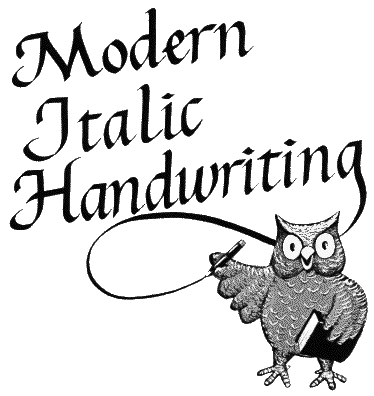
Italic handwriting makes a lot of sense to me. You first learn to print and then it doesn’t take much to switch over to cursive italic letters.Shira want to learn how to write in italic or how to do calligraphy. All of a sudden she is transforming her chicken scratch handwriting into something beautiful and wants the tools to make it even more beautiful.

I don't know if you accept multiple posts but I thought this and the "Musical Afternoon" had to go together. The first is that typical, "Look at everything we did! I'm so organized and clever!" post and this submission is the immediate followup where I realized that post made me look like something I'm not - an organized mom. Of course I had to correct that!.
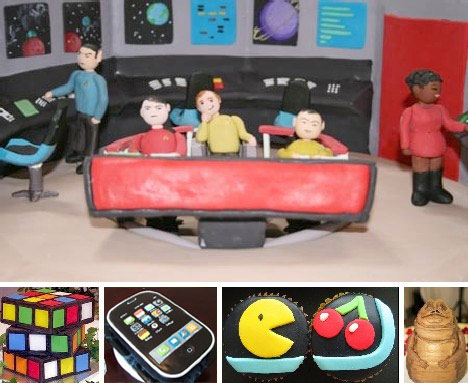


Banned Books Week: Celebrating the Freedom to Read is observed during the last week of September each year. Observed since 1982, this annual ALA event reminds Americans not to take this precious democratic freedom for granted. This year, 2008, marks BBW's 27th anniversary (September 27 through October 4).
BBW celebrates the freedom to choose or the freedom to express one’s opinion even if that opinion might be considered unorthodox or unpopular and stresses the importance of ensuring the availability of those unorthodox or unpopular viewpoints to all who wish to read them. After all, intellectual freedom can exist only where these two essential conditions are met.
BBW is sponsored by the American Booksellers Association, American Booksellers Foundation for Free Expression, American Library Association, American Society of Journalists and Authors, Association of American Publishers, National Association of College Stores, and is endorsed by the Center for the Book in the Library of Congress.
A challenge is defined as a formal, written complaint, filed with a library or school requesting that materials be removed because of content or appropriateness. According to Judith F. Krug, director of the Office for Intellectual Freedom, the number of challenges reflects only incidents reported, and for each reported, four or five remain unreported.
The “10 Most Challenged Books of 2007” reflect a range of themes, and consist of the following titles:
1) “And Tango Makes Three,” by Justin Richardson/Peter Parnell
Reasons: Anti-Ethnic, Sexism, Homosexuality, Anti-Family, Religious Viewpoint, Unsuited to Age Group
2) The Chocolate War,” by Robert Cormier
Reasons: Sexually Explicit, Offensive Language, Violence
3) “Olive’s Ocean,” by Kevin Henkes
Reasons: Sexually Explicit and Offensive Language
4) “The Golden Compass,” by Philip Pullman
Reasons: Religious Viewpoint
5) “The Adventures of Huckleberry Finn,” by Mark Twain
Reasons: Racism
6) “The Color Purple,” by Alice Walker
Reasons: Homosexuality, Sexually Explicit, Offensive Language,
7) "TTYL,” by Lauren Myracle
Reasons: Sexually Explicit, Offensive Language, Unsuited to Age Group
8) "I Know Why the Caged Bird Sings,” by Maya Angelou
Reasons: Sexually Explicit
9) “It’s Perfectly Normal,” by Robie Harris
Reasons: Sex Education, Sexually Explicit
10) "The Perks of Being A Wallflower,” by Stephen Chbosky
Reasons: Homosexuality, Sexually Explicit, Offensive Language, Unsuited to A

What you can do to fight censorship and keep books available in your libraries
Here are some of our suggestions to help you celebrate the week. We hope one is a good fit for you. If you can think of other ways to celebrate the week, please share them with us at oif@ala.org. Your ideas may inspire other people!
Stay informed. If you read or hear about a challenge at your school or public library, support your librarian and free and open access to library materials. The ALA Office for Intellectual Freedom estimates they learn of only 20 to 25 percent of book challenges. Let us know if there is a challenge in your community. Find out what the policy is for reviewing challenged materials at your school or public library. Join the Intellectual Freedom Action News (IFACTION) e-list.
Organize your own Banned Books Read-Out! at your school, public library, or favorite bookstore.
Get involved. Go to school board meetings. Volunteer to help your local school or public library create an event that discusses the freedom to read and helps educate about censorship—maybe a film festival, a readout, a panel discussion, an author reading or a poster contest for children illustrating the concept of free speech.
Speak out. Write letters to the editor, your public library director and your local school principal supporting the freedom to read. Talk to your neighbors and friends about why everyone should be allowed to choose for themselves and their families what they read. Encourage your governor, city council and/or mayor to proclaim "Banned Books Week - Celebrating the Freedom to Read" in your state or community.
Exercise your rights! Check out or re-read a favorite banned book. Encourage your book group to read and discuss one of the books. Give one of your favorite books as a gift. The 100 most challenged books of the 1990s is a good resource!
Join the Freedom to Read Foundation. The Foundation is dedicated to the legal and financial defense of intellectual freedom, especially in libraries. You can also support the cause by buying Banned Books Week posters, buttons and T-shirts online.
Dedicate one day's programming on your National Public Radio (NPR) station to Banned Books Week. For example, "Today's programming on [the name of the radio station] is made possible in part by [your name], who is celebrating this Banned Books Week by re-reading I Know Why the Caged Bird Sings [or another favorite banned or challenged book] or by accomplishing some other activity related to the week.
Mount these Web badges on your blogs and home pages to help spread the word about BBW.
The presidential candidates for 2008 atone for their sins for the New Year. Happy Rosh Hashanah from Taglit-Birthright Israel!
Cartoon by http://jewishrobot.com
The problem, as far as our political process is concerned, is that half the electorate revels in Palin's lack of intellectual qualifications. When it comes to politics, there is a mad love of mediocrity in this country. "They think they're better than you!" is the refrain that (highly competent and cynical) Republican strategists have set loose among the crowd, and the crowd has grown drunk on it once again. "Sarah Palin is an ordinary person!" Yes, all too ordinary.
We have all now witnessed apparently sentient human beings, once provoked by a reporter's microphone, saying things like, "I'm voting for Sarah because she's a mom. She knows what it's like to be a mom." Such sentiments suggest an uncanny (and, one fears, especially American) detachment from the real problems of today. The next administration must immediately confront issues like nuclear proliferation, ongoing wars in Iraq and Afghanistan (and covert wars elsewhere), global climate change, a convulsing economy, Russian belligerence, the rise of China, emerging epidemics, Islamism on a hundred fronts, a defunct United Nations, the deterioration of American schools, failures of energy, infrastructure and Internet security … the list is long, and Sarah Palin does not seem competent even to rank these items in order of importance, much less address any one of them.
Palin's most conspicuous gaffe in her interview with Gibson has been widely discussed. The truth is, I didn't much care that she did not know the meaning of the phrase "Bush doctrine." And I am quite sure that her supporters didn't care, either. Most people view such an ambush as a journalistic gimmick. What I do care about are all the other things Palin is guaranteed not to know—or will be glossing only under the frenzied tutelage of John McCain's advisers. What doesn't she know about financial markets, Islam, the history of the Middle East, the cold war, modern weapons systems, medical research, environmental science or emerging technology? Her relative ignorance is guaranteed on these fronts and most others, not because she was put on the spot, or got nervous, or just happened to miss the newspaper on any given morning. Sarah Palin's ignorance is guaranteed because of how she has spent the past 44 years on earth.
I care even more about the many things Palin thinks she knows but doesn't: like her conviction that the Biblical God consciously directs world events. Needless to say, she shares this belief with mil-lions of Americans—but we shouldn't be eager to give these people our nuclear codes, either. There is no question that if President McCain chokes on a spare rib and Palin becomes the first woman president, she and her supporters will believe that God, in all his majesty and wisdom, has brought it to pass. Why would God give Sarah Palin a job she isn't ready for? He wouldn't. Everything happens for a reason. Palin seems perfectly willing to stake the welfare of our country—even the welfare of our species—as collateral in her own personal journey of faith. Of course, McCain has made the same unconscionable wager on his personal journey to the White House.
In speaking before her church about her son going to war in Iraq, Palin urged the congregation to pray "that our national leaders are sending them out on a task that is from God; that's what we have to make sure we are praying for, that there is a plan, and that plan is God's plan." When asked about these remarks in her interview with Gibson, Palin successfully dodged the issue of her religious beliefs by claiming that she had been merely echoing the words of Abraham Lincoln. The New York Times later dubbed her response "absurd." It was worse than absurd; it was a lie calculated to conceal the true character of her religious infatuations. Every detail that has emerged about Palin's life in Alaska suggests that she is as devout and literal-minded in her Christian dogmatism as any man or woman in the land. Given her long affiliation with the Assemblies of God church, Palin very likely believes that Biblical prophecy is an infallible guide to future events and that we are living in the "end times." Which is to say she very likely thinks that human history will soon unravel in a foreordained cataclysm of war and bad weather. Undoubtedly Palin believes that this will be a good thing—as all true Christians will be lifted bodily into the sky to make merry with Jesus, while all nonbelievers, Jews, Methodists and other rabble will be punished for eternity in a lake of fire. Like many Pentecostals, Palin may even imagine that she and her fellow parishioners enjoy the power of prophecy themselves. Otherwise, what could she have meant when declaring to her congregation that "God's going to tell you what is going on, and what is going to go on, and you guys are going to have that within you"?
You can learn something about a person by the company she keeps. In the churches where Palin has worshiped for decades, parishioners enjoy "baptism in the Holy Spirit," "miraculous healings" and "the gift of tongues." Invariably, they offer astonishingly irrational accounts of this behavior and of its significance for the entire cosmos. Palin's spiritual colleagues describe themselves as part of "the final generation," engaged in "spiritual warfare" to purge the earth of "demonic strongholds." Palin has spent her entire adult life immersed in this apocalyptic hysteria. Ask yourself: Is it a good idea to place the most powerful military on earth at her disposal? Do we actually want our leaders thinking about the fulfillment of Biblical prophecy when it comes time to say to the Iranians, or to the North Koreans, or to the Pakistanis, or to the Russians or to the Chinese: "All options remain on the table"?
It is easy to see what many people, women especially, admire about Sarah Palin. Here is a mother of five who can see the bright side of having a child with Down syndrome and still find the time and energy to govern the state of Alaska. But we cannot ignore the fact that Palin's impressive family further testifies to her dogmatic religious beliefs. Many writers have noted the many shades of conservative hypocrisy on view here: when Jamie Lynn Spears gets pregnant, it is considered a symptom of liberal decadence and the breakdown of family values; in the case of one of Palin's daughters, however, teen pregnancy gets reinterpreted as a sign of immaculate, small-town fecundity. And just imagine if, instead of the Palins, the Obama family had a pregnant, underage daughter on display at their convention, flanked by her black boyfriend who "intends" to marry her. Who among conservatives would have resisted the temptation to speak of "the dysfunction in the black community"?
Teen pregnancy is a misfortune, plain and simple. At best, it represents bad luck (both for the mother and for the child); at worst, as in the Palins' case, it is a symptom of religious dogmatism. Governor Palin opposes sex education in schools on religious grounds. She has also fought vigorously for a "parental consent law" in the state of Alaska, seeking full parental dominion over the reproductive decisions of minors. We know, therefore, that Palin believes that she should be the one to decide whether her daughter carries her baby to term. Based on her stated position, we know that she would deny her daughter an abortion even if she had been raped. One can be forgiven for doubting whether Bristol Palin had all the advantages of 21st-century family planning—or, indeed, of the 21st century.
We have endured eight years of an administration that seemed touched by religious ideology. Bush's claim to Bob Woodward that he consulted a "higher Father" before going to war in Iraq got many of us sitting upright, before our attention wandered again to less ethereal signs of his incompetence. For all my concern about Bush's religious beliefs, and about his merely average grasp of terrestrial reality, I have never once thought that he was an over-the-brink, Rapture-ready extremist. Palin seems as though she might be the real McCoy. With the McCain team leading her around like a pet pony between now and Election Day, she can be expected to conceal her religious extremism until it is too late to do anything about it. Her supporters know that while she cannot afford to "talk the talk" between now and Nov. 4, if elected, she can be trusted to "walk the walk" until the Day of Judgment.
What is so unnerving about the candidacy of Sarah Palin is the degree to which she represents—and her supporters celebrate—the joyful marriage of confidence and ignorance. Watching her deny to Gibson that she had ever harbored the slightest doubt about her readiness to take command of the world's only superpower, one got the feeling that Palin would gladly assume any responsibility on earth:
"Governor Palin, are you ready at this moment to perform surgery on this child's brain?"
"Of course, Charlie. I have several boys of my own, and I'm an avid hunter."
"But governor, this is neurosurgery, and you have no training as a surgeon of any kind."
"That's just the point, Charlie. The American people want change in how we make medical decisions in this country. And when faced with a challenge, you cannot blink."
The prospects of a Palin administration are far more frightening, in fact, than those of a Palin Institute for Pediatric Neurosurgery. Ask yourself: how has "elitism" become a bad word in American politics? There is simply no other walk of life in which extraordinary talent and rigorous training are denigrated. We want elite pilots to fly our planes, elite troops to undertake our most critical missions, elite athletes to represent us in competition and elite scientists to devote the most productive years of their lives to curing our diseases. And yet, when it comes time to vest people with even greater responsibilities, we consider it a virtue to shun any and all standards of excellence. When it comes to choosing the people whose thoughts and actions will decide the fates of millions, then we suddenly want someone just like us, someone fit to have a beer with, someone down-to-earth—in fact, almost anyone, provided that he or she doesn't seem too intelligent or well educated.
I believe that with the nomination of Sarah Palin for the vice presidency, the silliness of our politics has finally put our nation at risk. The world is growing more complex—and dangerous—with each passing hour, and our position within it growing more precarious. Should she become president, Palin seems capable of enacting policies so detached from the common interests of humanity, and from empirical reality, as to unite the entire world against us. When asked why she is qualified to shoulder more responsibility than any person has held in human history, Palin cites her refusal to hesitate. "You can't blink," she told Gibson repeatedly, as though this were a primordial truth of wise governance. Let us hope that a President Palin would blink, again and again, while more thoughtful people decide the fate of civilization.
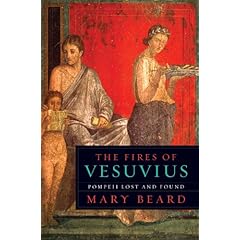
Mary Beard uses the relics buried by the eruption of AD79 (the fish-weighing scales and flour mills, the gladiators' helmets and grafitti) to bring everyday Roman culture alive.
Beard covers the big public issues - economy and government, gods, games - and animates them superbly by tying them to the biographies of real Pompeiians: the heart-throb gladiator Celadus, the well-connected local worthy Marcus Holconius Priscus, and the warty banker Lucius Caecilius Jucundus. She is most interested, however, in the domestic and the intimate. In the excellent chapter on painting and decorating, she doesn't just analyse Pompeiian style, she opens up cupboards to count the paint pots and turn over the spoons and spatulas. She doesn't only describe the grander rooms with their fantastical frescoes and deep tones of “Pompeiian red”, she explores the corridors and service quarters, revealing the ferocious zebra-stripe colour scheme “which would not have looked wholly out of place in the 1960s”.
Pompeii's smells must have been no less vibrant than its colours. The 20,000-seater amphitheatre had no lavatory. Huge local fortunes were built on a kind of fermented (rotted, some say) fish sauce. As for the Roman baths, they were apparently “a seething mass of bacteria”, which weren't regarded as safe to enter with an open wound. Cleanliness aside, they sound closer in spirit to a 1970s San Francisco bathhouse than, say, today's sleek spas.
Rome's famed hygienic fastidiousness is not the only classical myth that Beard delights in busting. Togas, when they were worn at all, came in fierce colours, not just white. Losing gladiators were much more likely to survive than be killed. And if the cramped dining rooms and minuscule kitchens of Pompeii are any guide, the decadent banquet of the celluloid imagination was probably a rare affair. The notorious dormice dipped in honey really were a Pompeiian treat - the jars found with internal, premoulded dormouse exercise runs prove it - but the wealthy largely made do with a “finger buffet” of bread, olives and cheese, perhaps with sausages and black pudding. The poor, it seems, dined out at simple cafes.
Most shockingly, the Romans were not quite as morbidly hypersexual as we like to imagine. The Stabian Baths were indeed brightened up by athletic-erotic scenes - including depictions of both a trio and a foursome. Carved phalluses and boastfully obscene graffiti really are found everywhere. But much of what has been called erotic, Beard protests, is more “a familiar and slightly edgy mixture of sex, drink and play” than evidence of “terrible moral turpitude”.
it have much of a taste of its own. Instead its appeal lies in its transforming powers. The bright red berry contains a molecule that temporarily rewires the palate's perception of sour flavours, coating the tongue with a sweet aftertaste and tricking you into thinking that the food in question is sugary. Unpalatably sharp but healthy fruits, such as English blackberries, lose all their bitterness. Lemons and limes are suddenly delicious raw.
Yet this is a food that doesn't punish waistlines. ''The miracle fruit contains no fat,'' says Japanese scientist Mitsuharu Shimamura, who has lectured audiences worldwide on the berry's potential. ''And the calories are negligible.''

Long term it's impossible to overestimate the fruit's potential. With obesity levels at epidemic proportions and our western diet dangerously high in sugar, this small African berry could revolutionise the way we eat, giving us that sugar fix we crave without the calorific penalty, or the side-effects, that often accompany it. Although the berry has yet to be officially sanctioned as a health food or taken up in a major way by the food industry, perhaps it's only a matter of time.
Kathy Leeds grows animated as she describes the courses she is taking this fall, including classes in current events, art and literature.
But Leeds will never step foot on a campus or in a classroom. The 79-year-old widow has multiple sclerosis, uses a wheelchair and is confined to her Manhattan apartment.
Leeds is one of about 500 people enrolled for the fall semester in a telephone-based educational program for homebound seniors called DOROT University Without Walls, believed to be the largest program of its kind in the country.
The curriculum includes more than 250 courses and runs the gamut from understanding feng shui and poetry writing to discussions on moral, ethical and philosophical issues and a discourse on women of the progressive era. Informational classes on money management, Internet surfing and medicine also are available.

David and Jonatas Nunes have passed tests proving a high level of knowledge in a variety of subjects, including history, the natural sciences, the arts, sports, computing, and mathematics.
The tests given to the Nunes children were so difficult that public school teachers admitted that they could not pass them. The two boys, aged 14 and 15, had only one week to study for several of the tests, which were announced only a week in advance.
The exams were ordered by a local court in an attempt to determine if the Nunes had committed the crime of "intellectual abandonment", which could have resulted in a heavy fine, and possibly jail time for the two parents, as well as loss of custody of their three children.
While the boys were told well in advance they would be tested on mathematics, geography, science, and history, they were informed only one week before the test date that they would also be tested on Portuguese, English, arts, and physical education, including questions about the history of handball, basketball, soccer, and other sports.
Sometimes parents will base their decision to homeschool on the racial composition of the local school. If the school is small and majority white, then some feel there is no need to pull their children from the government school.
However, there is something you need to take into consideration and that is the teachers and the textbooks.
Your children may not attend school in an integrated setting, but they are still learning from the same books and receiving the same garbage in the lectures.
In fact, sometimes this type of school is even more dangerous. Because they have only been exposed to the cool non-whites portrayed on television and in movies, they are unaccustomed to the hatred most non-whites have for whites.
In school they will learn about all of the so-called accomplishments and inventions of the other races. They will be taught how terrible, evil, and oppressive white people are. They will still have to write reports about Martin Luther King Jr. They will still learn lies about Rosa Parks. They will still be taught that white nationalism is basically a mental disorder that is only suitable for society's rejects. They will be taught lies upon lies about the Christian faith, the founding of America, the wonderful attributes of homosexuals and lesbians and so on.

ZOOB pieces have an educational birthright: their design is based on a living and natural system—the nucleotides found in DNA that are the building blocks of life—and their mobility mirrors the natural movement of people, animals, and machines. This mobility also enhances ZOOB’s educational value, by allowing children to see an assembly as it moves, and by demonstrating the movement of biological, anatomical, and mechanical parts.
ZOOB pieces are easy enough for 6 year-olds to play with, and academically robust enough for educators to use them to model items such as DNA double helixes, anatomic parts, and architectural or mechanical designs.



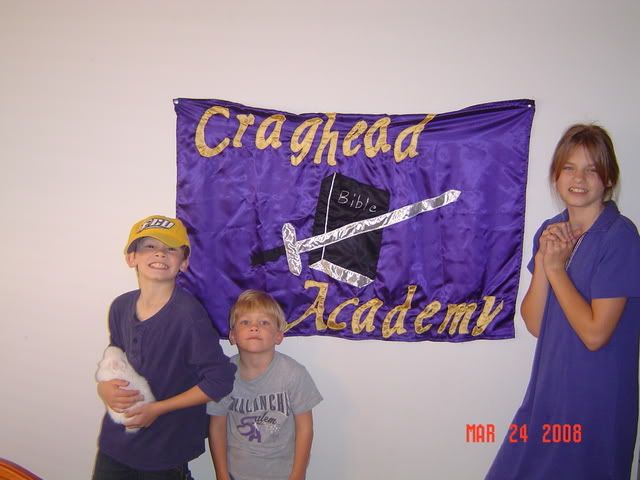



I bought this book at Sam's Club when I was collecting materials to inform my elections unit production, because of the cool set of cards in the beginning of the book -- pictures of the presidents on the front and facts/trivia on the back, along with different game ideas for learning the names and order. That seemed like a great selling point, and it is. However, I've found that we're using this book a lot, and it has benefits beyond the deck of cards in the front. For example, there is *another* set of cards in the middle! Who knew?
After that first section, there is a page for every President, with a summary of their lives and the major events that happened during their presidencies.

What is Pre-Algebra (so you know, whether this book fits your needs or not)? The definition of Pre-Algebra probably varies a bit from place to palce and time to time, but here's a rough list of topics:
Basic number theory ... remember all those different kinds of numbers, like "natural" and "whole" and "skimmed" (no, wait, "skimmed" is milk, not numbers).
Addition, subtraction, multiplication and division ... (so what, you say!!!) of not just numbers but of exponents, decimals, negative and positive terms, and exponents. Ultimately, these are many of the basic rules you will need in algebra.
Basic expressions ... what re they ... and introduction to equations.
Geometry (areas, volume, etc. etc.) including the beginning of triangles. (Triangles are not just shapes, but rather, the beginnings of some heavy concepts. I mean after all, a whole branch of math is named after them ... Trigonometry. There is a reason we've never heard of Squarometry!)
Basic data analysis: Collecting data, display and basic analysis, and probability.
I cannot promise you that this book matches exactly your local state standards for pre-algebra math, but my sense is that it would for almost all possible users.
So they know 7,000 public school students didn't get vaccinated for "religious reasons" BUT Scholastic has an article entitled Homeschool Parents Spread Measles on their website. Why are homeschoolers being blamed instead of the 7,000 public school students who are unvaccinated due to religious reasons? They also ignore the fact that most parents make the decision to vaccinate before the child reaches school age (see vaccination schedule). The decision to homeschool may be driven by the parents desire not to expose their children to what they see as risky vaccines. But homeschooling isn't to blame for children being unvaccinated.I was as irritated as Alasandra when I read this article. Our choice not to give the children the MMR vaccine had nothing to do with our decision to homeschool. We may give the MMR as three separate doses before they reach puberty but I need to do more research before we make that decision.
"I can't carry a tune in a bucket" is a common expression of those who consider themselves unmusical. Having a "tin ear" is another common description. It is certainly true that individuals possess varying levels of aptitude in regards to their musical intelligence, however, just like mathematic or linguistic intelligence, every person can take their aptitude level as a starting point and work to build stronger skills in that area.Read the entire article on pitch development here
This is amovie review of "Ballet Shoes" written by Noel Streatfeild and published in 1937. While I urge you not to miss out on the wonderful book, this movie is colorful and exciting. Three sisters with ambitions to fulfill their dreams, also focus on loyalty and devotion to their family.


The purpose of the Book Arts Bash is to have fun writing and illustrating books, and to help students and teachers reach across the curriculum to include writing and art in other areas of study. Any homeschooled student or homeschooling parent can enter.

Serena and Venus Williams, two of the biggest names in Tennis, are both shining examples of homeschooled Olympians. Both grew were withdrawn from middle school and taught at home by their father, Richard Williams.
Their education included giving speeches at local schools and focusing on the basic subjects, such as math, science, English and social studies. Venus graduated in 1997 with a 3.9 GPA.
Thomas Finchum, 2008 U.S. diving contender, was also homeschooled. Thomas trains 5.5 hours per day, six days a week and is homeschooled at Emmaus Lutheran Middle School to keep up with his studies.
Another U.S. diver, Ariel Rittenhouse, receives her education online. She attends Halstrom International Online High School and follows the curriculum and testing requirements of a normal high school. Ariel can finish homework assignments and keep up with schoolwork while on diving trips and in-between practices.
Here are some additional athletes that opted for homeschooling over traditional school.
• Mark Hazinski – USA Table Tennis
• Katie Hoff – USA Swimming
• Kelci Bryant – USA Diving
• Nastia Luikin – USA Gymnastics
• David Boudia – USA Diving
• Amber Trani – USA Gymnastics
In this article I explain how you can setup your blog to automatically create main navigation links/tabs when new pages are published by using custom fields to mark those pages you want to appear in the navigation menu.
The survey, released Tuesday, combined the telephone responses from a nationally representative sample of 1,102 young people, ages 12 to 17, and their parents. Performed from November 2007 through February of this year, and partly funded by the MacArthur Foundation, it had a margin of error of three percentage points.
Among other things, the survey found that:
—Ninety-seven percent of young respondents play video games. That's 99 percent of boys and 94 percent of girls, with little difference in the percentages among various racial and ethnic groups and incomes. In fact, 7 percent of those surveyed said they didn't have a computer at home, but did have a game console, such as Sony Corp.'s PlayStation, Microsoft Corp.'s Xbox or Nintendo Co.'s Wii.
—They play often. When surveyed, half of the respondents said they had played a video game the previous day.
—Their games of choice are as diverse as their tastes in music or TV. Eighty percent of respondents play five or more different game genres, with racing, puzzles, sports and action the most common. Favorites were "Guitar Hero," "Halo 3," "Madden NFL," solitaire and "Dance Dance Revolution."
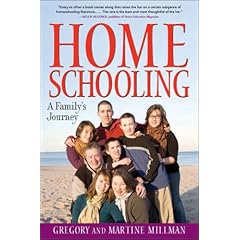

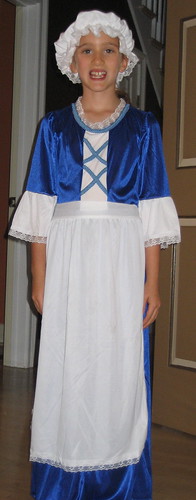




| Evolved Homeschooling |
||||
 |
 |
 |
 |
 |
| Get Your Free Web Ring by Bravenet.com |
||||